
Genetic Programming and Evolvable Machines
Scope & Guideline
Transforming Ideas into Intelligent Solutions
Introduction
Aims and Scopes
- Genetic Programming Techniques:
The journal emphasizes the development and application of genetic programming techniques, exploring novel algorithms, representations, and methods to solve complex problems across various domains. - Evolvable Hardware and Systems:
Research related to evolvable hardware, which involves systems that can adapt and improve their performance through evolutionary processes, is a key focus area, including studies on hardware implementations and optimization. - Multi-objective Optimization:
The journal features contributions that tackle multi-objective optimization problems using genetic programming, highlighting the balance between competing objectives in algorithm design. - Applications in Real-world Problems:
A significant aim is to apply genetic programming to solve practical issues in fields like robotics, image processing, and data analysis, showcasing its versatility and effectiveness in various applications. - Theoretical Foundations:
The journal also delves into the theoretical aspects of genetic programming, including discussions on evolution metaphors, algorithm efficiency, and the underlying principles that govern evolutionary computation.
Trending and Emerging
- Integration of Deep Learning and Genetic Programming:
Recent publications indicate a growing trend towards integrating deep learning techniques with genetic programming, particularly in applications like automated model design and feature extraction. - Geometric Semantic Genetic Programming:
There is an increasing emphasis on geometric semantic genetic programming, which provides a more structured approach to GP, allowing for better interpretability and performance in function approximation tasks. - Evolutionary Robotics and Control Systems:
The application of genetic programming techniques to robotics, particularly in evolving control systems and adaptive behaviors, is gaining momentum, reflecting the broader interest in intelligent autonomous systems. - AI Safety and Ethical Considerations:
Emerging discussions around AI safety and ethical implications of evolutionary algorithms are becoming more prevalent, particularly as the field grapples with the societal impacts of AI technologies. - Dynamic and Adaptive Systems:
Research focusing on dynamic and adaptive systems, including those that change in response to their environments, is on the rise, emphasizing the need for flexibility and responsiveness in evolutionary computation.
Declining or Waning
- Traditional Genetic Algorithms:
The prominence of traditional genetic algorithms seems to be diminishing as researchers increasingly explore hybrid approaches that combine genetic programming with other optimization methods, such as neural networks. - Basic Symbolic Regression:
There has been a noticeable decrease in papers solely focused on basic symbolic regression techniques, as the field has evolved towards more complex and integrated approaches, such as geometric semantic GP. - Single-objective Optimization Studies:
Research centered on single-objective optimization is becoming less common, with a growing preference for multi-objective frameworks that better reflect real-world complexities and trade-offs. - Static Representations and Models:
The use of static representations in genetic programming is declining, as dynamic and adaptive models gain traction, leading to more robust solutions that can evolve and adapt over time. - Purely Theoretical Discussions:
While theoretical discussions remain important, there is a trend toward integrating theory with practical applications, resulting in fewer purely theoretical papers being published.
Similar Journals

Memetic Computing
Connecting Theory with Practical Applications in Memetic ComputingMemetic Computing is a premier academic journal published by SPRINGER HEIDELBERG, dedicated to advancing research in the interdisciplinary domains of computer science and control optimization. With an impact factor that places it in the prestigious Q1 category for both Computer Science and Control and Optimization as of 2023, Memetic Computing stands at the forefront of innovation, offering researchers, professionals, and students a vital platform to explore and disseminate transformative findings in these rapidly evolving fields. With convergence periods specified from 2009 to 2024, the journal aims to illustrate the synergy between algorithmic and natural systems, reflecting current trends and future trajectories within the scope of memetic algorithms. Its robust Scopus rankings signal its significance as an influential resource within the global academic community. This journal is invaluable for those looking to enhance their understanding and engage with cutting-edge research that blends computational theory with practical applications.
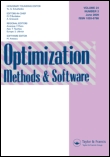
OPTIMIZATION METHODS & SOFTWARE
Pioneering Research in Optimization Techniques and Software SolutionsOPTIMIZATION METHODS & SOFTWARE, published by Taylor & Francis Ltd in the United Kingdom, is a premier journal dedicated to the field of optimization and software development. With an impressive impact factor, this journal maintains a critical role in advancing research in applied mathematics, control, and optimization, as evident from its categorization in the prestigious Q1 quartile for both applied mathematics and control and optimization, and Q2 in software for the year 2023. Over its publication span from 1992 to 2024, it has garnered significant recognition, ranking #116 out of 635 in applied mathematics and #29 out of 130 in control and optimization according to Scopus. The journal provides a platform for innovative research outcomes, theoretical advancements, and novel algorithms that aid researchers, professionals, and students in tackling complex optimization problems. Whether you are looking to disseminate your latest findings or explore cutting-edge methodologies, OPTIMIZATION METHODS & SOFTWARE remains an invaluable resource in the field.
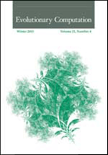
EVOLUTIONARY COMPUTATION
Catalyzing Collaboration in Computational MathematicsEVOLUTIONARY COMPUTATION, published by MIT PRESS, is a premier journal in the field of Computational Mathematics, holding a distinguished Q1 ranking in the 2023 category and an impressive 87th percentile in Scopus rankings for Computational Mathematics. Since its inception in 1996, the journal has served as a critical platform for presenting cutting-edge research and development in the applications and theory of evolutionary algorithms. Recognized for its rigorous peer-review process, EVOLUTIONARY COMPUTATION invites contributions that advance the understanding of algorithmic strategies inspired by natural evolution, thereby playing a significant role in the scientific community. The journal is pivotal for researchers, professionals, and students aiming to explore innovative methodologies and applications of evolutionary techniques in diverse fields. With a focus on fostering collaboration and knowledge dissemination, this journal not only serves the academic community but also impacts industry practices, encouraging the integration of these evolutionary approaches into real-world problems.

ACM Communications in Computer Algebra
Exploring the Intersection of Algebra and ComputingACM Communications in Computer Algebra is an influential peer-reviewed journal published by the Association for Computing Machinery (ACM), dedicated to advancing the field of computer algebra. With its ISSN 1932-2232 and E-ISSN 1932-2240, the journal serves as a crucial platform for disseminating innovative research that intersects computational mathematics and theoretical computer science. As evidenced by its category quartiles, it holds a notable Q3 ranking in both Computational Mathematics and Computational Theory and Mathematics for the year 2023, reflecting its commitment to fostering rigorous scholarship. Although it remains a non-open access publication, the journal provides vital insights and findings that contribute significantly to the academic dialogue within these domains. Researchers, professionals, and students alike can rely on its curated content to stay abreast of advancements, applications, and methodologies pertinent to computer algebra, especially throughout its publishing epochs from 2011 to 2021, and resuming in 2023 through 2024.
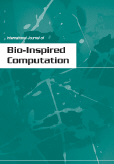
International Journal of Bio-Inspired Computation
Advancing the Frontiers of Bio-Inspired ComputingInternational Journal of Bio-Inspired Computation, published by INDERSCIENCE ENTERPRISES LTD, is a leading platform dedicated to advancing research in the fields of bio-inspired computing and its applications. With a robust ISSN of 1758-0366 and E-ISSN of 1758-0374, this journal contributes significantly to the discourse in Computer Science, particularly emphasizing theoretical and practical frameworks that mirror natural processes. Situated in Switzerland, this peer-reviewed journal operates under a rigorous editorial process, ensuring high-quality publications that attract considerable attention, as evidenced by its placement in the Q2 category for 2023 in General Computer Science and Q3 in Theoretical Computer Science. With Scopus rankings reflecting its growing influence—ranked #62 out of 232 in General Computer Science and #36 out of 130 in Theoretical Computer Science—this journal invites researchers, professionals, and students to explore innovative methodologies and development in bio-inspired technologies. Although it currently does not adopt an open-access model, the journal remains committed to disseminating vital research that fuels advancements in computational intelligence, fostering collaboration and knowledge exchange in the ever-evolving landscape of computing.
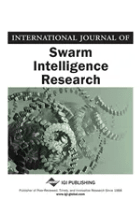
International Journal of Swarm Intelligence Research
Unveiling Insights in Swarm Intelligence ResearchInternational Journal of Swarm Intelligence Research, published by IGI Global, stands at the forefront of research in the dynamic field of artificial intelligence, focusing specifically on swarm intelligence and its applications. With an ISSN of 1947-9263 and an E-ISSN of 1947-9271, this journal has carved a niche within academia since its inception, boasting a commendable Q3 rank in the categories of Artificial Intelligence, Computational Theory and Mathematics, and Computer Science Applications as of 2023. The journal spans vital research from the years 2017 to 2024, fostering an environment that welcomes innovative studies that apply natural systems principles to computational methodologies. Although not classified as Open Access, the journal remains accessible to a broad audience, providing vital insights and fostering discussion among researchers, professionals, and students delving into cutting-edge swarm intelligence topics. As such, this journal is an essential resource for those aiming to advance their understanding and application of these transformative technologies.

Evolving Systems
Charting New Territories in System EvolutionEvolving Systems, an esteemed journal published by Springer Heidelberg, focuses on advancing the interdisciplinary field of evolving systems, encompassing areas such as computer science applications, control and optimization, control and systems engineering, and modeling and simulation. Since its inception in 2010, the journal has made significant contributions to the academic community, currently holding a commendable Q2 ranking across multiple categories for the year 2023. With an impactful focus on the dynamic behaviors of systems and their adaptive methodologies, Evolving Systems serves as a crucial platform for researchers, professionals, and students aiming to explore and expand the boundaries of system evolution. Despite being a subscription-based journal, it remains committed to fostering high-quality research dissemination and encourages submissions that push the envelope of knowledge in this rapidly developing field. The journal employs a rigorous peer-review process, ensuring the publication of cutting-edge research that meets the highest scholarly standards.
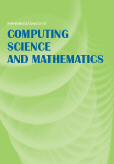
International Journal of Computing Science and Mathematics
Advancing Knowledge at the Intersection of Science and TechnologyThe International Journal of Computing Science and Mathematics, published by INDERSCIENCE ENTERPRISES LTD, is a pivotal platform for the dissemination of cutting-edge research in the intertwined disciplines of computing science and mathematics. With an ISSN of 1752-5055 and an E-ISSN of 1752-5063, the journal primarily serves the academic community engaged in applied mathematics, computational mathematics, theoretical computer science, and more, making significant contributions that resonate across various fields of technology and science. While the journal is currently categorized in the Q4 quartile for multiple related fields, including Applied Mathematics and Computational Theory, it continues to strive towards advancing the knowledge and practice within these areas. Spanning years from 2007 to 2010 and again from 2012 to 2024, the journal seeks to publish high-quality, peer-reviewed articles that not only address theoretical advancements but also explore practical applications of computing science in mathematical contexts, thereby fostering collaboration among researchers, professionals, and students alike. Please note that this journal is not available as Open Access, thus ensuring a curated content selection intended for dedicated research communities.
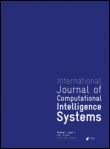
International Journal of Computational Intelligence Systems
Catalyzing Breakthroughs in Computational Mathematics and ScienceInternational Journal of Computational Intelligence Systems, published by SPRINGERNATURE, is a leading open-access journal that has been at the forefront of research in the field of computational intelligence since 2008. With an ISSN of 1875-6891 and an E-ISSN of 1875-6883, this journal occupies a prominent place in the academic landscape, achieving impressive rankings in its categories: Q2 in both Computational Mathematics and Computer Science (miscellaneous), reflecting its significance and relevance to researchers, professionals, and students. Based in Switzerland, the journal is committed to disseminating high-quality research and fostering innovation in computational methodologies, algorithms, and applications. Its strong impact factor and Scopus rankings—31/189 in Computational Mathematics and 53/232 in General Computer Science—underscore its critical role in advancing knowledge in these interdisciplinary fields. As an open-access journal, it provides unparalleled accessibility to cutting-edge research, supporting the global community in staying at the forefront of computational intelligence advancements.

DISCRETE MATHEMATICS AND THEORETICAL COMPUTER SCIENCE
Connecting Theory with Practice in Computer Science and Discrete MathematicsDISCRETE MATHEMATICS AND THEORETICAL COMPUTER SCIENCE, published by DISCRETE MATHEMATICS THEORETICAL COMPUTER SCIENCE in France, stands as a significant open-access journal since 1997, publishing innovative research articles within the intersecting disciplines of discrete mathematics and theoretical computer science. With an ISSN of 1462-7264 and an E-ISSN of 1365-8050, this journal aims to provide a platform for scholarly discourse and dissemination of knowledge, making it accessible to a global audience. It is recognized for its contributions, achieving a Q2 ranking in both Computer Science (Miscellaneous) and Discrete Mathematics and Combinatorics, alongside a Q3 ranking in Theoretical Computer Science as of 2023. The journal’s rigorous selection process ensures that only high-quality research is published, promoting advancements in these critical areas of study. Researchers, professionals, and students alike can benefit from its comprehensive articles that not only enhance theoretical understanding but also foster practical applications in the ever-evolving landscape of computer science.